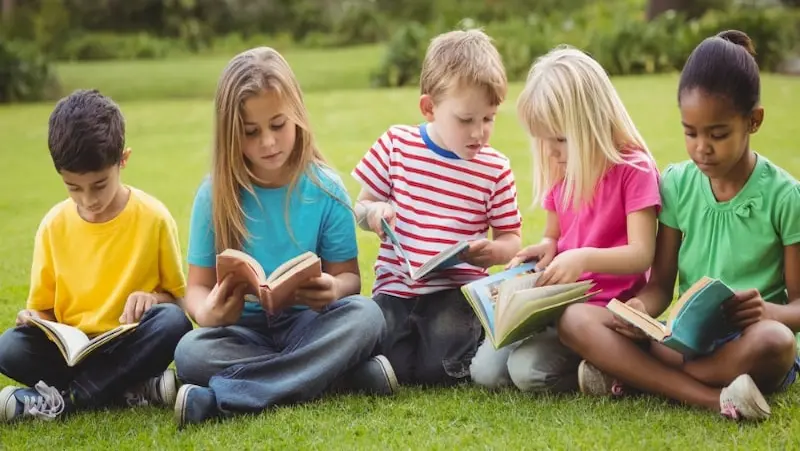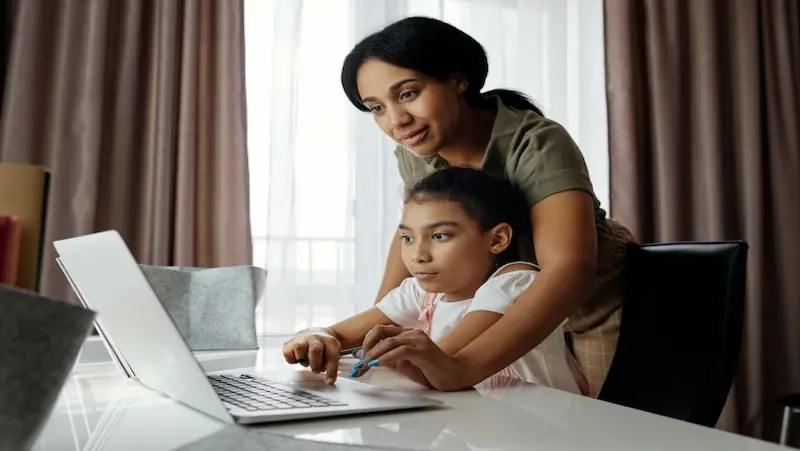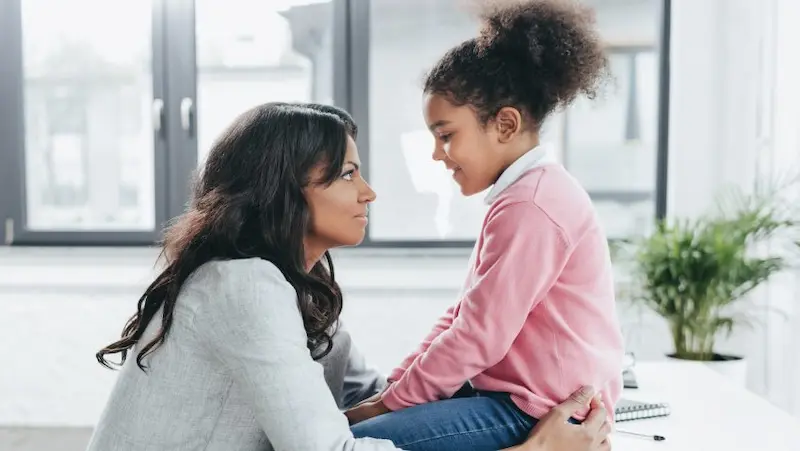Effective communication is a fundamental skill that significantly influences a student’s journey toward success. As students navigate through their academic years and prepare for their future careers, strong communication skills play a pivotal role in shaping their achievements.
This brief exploration will underscore the critical importance of communication abilities in fostering academic growth, interpersonal relationships, and professional accomplishments for students.
Table of contents
Understanding Communication Skills
Effective communication is the foundation of human interaction, allowing us to convey thoughts, emotions, and ideas with clarity and precision. Mastering communication skills is crucial in both academic and personal settings, facilitating success in various aspects of life. Effective communication plays a pivotal role in child development, encompassing language acquisition, social interaction, and the cultivation of skills that empower children to express themselves, connect with others, and navigate their world with confidence.

Definition and Components of Communication Skills:
Communication skills refer to the ability to express oneself and understand others efficiently. It involves various components, such as:
Verbal Communication: This encompasses speaking and listening, using words to express thoughts, ideas, and emotions while actively engaging in meaningful discussions with others.
Non-Verbal Communication: Beyond words, non-verbal cues like body language, facial expressions, and gestures convey crucial information, often adding depth and context to our verbal messages.
Written Communication: The skill of conveying thoughts through written mediums, such as emails, letters, reports, or essays, plays an essential role in academic and professional settings.
Active Listening: Listening attentively and empathetically to others is a vital component of effective communication, promoting understanding and fostering stronger connections.
Cultivating positive habits, including effective communication, enhances relationships, promotes understanding, and contributes to creating a harmonious and productive environment in various aspects of life.
Verbal Communication Skills
Whether you’re a student, a professional, or simply someone seeking to improve your communication abilities, mastering the art of effective verbal expression can lead to numerous advantages in your personal and professional life.

Active Listening Techniques:
Active listening is the foundation of effective communication. It involves giving your full attention to the speaker and genuinely understanding their message. To become an active listener, practice the following techniques:
1. Maintain eye contact and avoid distractions.
2. Avoid interrupting the speaker; instead, wait for appropriate pauses to respond.
3. Show empathy by nodding or providing verbal cues to encourage the speaker.
Public Speaking Tips for Students:
Public speaking can be intimidating, but with practice and confidence, anyone can become a compelling speaker. Consider these tips for successful public speaking:
1. Prepare and organize your content in a structured manner.
2. Rehearse your speech multiple times to build confidence and familiarity.
3. Speak at a moderate pace and vary your tone to maintain audience engagement.
4. Use visuals or anecdotes to illustrate key points effectively.
Enhancing Vocabulary and Language Skills:
A rich vocabulary allows you to express yourself more precisely and persuasively. To enhance your language skills:
1. Read regularly to expose yourself to a wide range of words and expressions.
2. Keep a vocabulary journal to note down new words and their meanings.
3. Practice using new words in everyday conversations to make them a part of your active vocabulary.
Non-Verbal Communication Skills
Effective communication goes beyond words; it extends into the realm of non-verbal cues, playing an equally vital role in conveying messages, emotions, and intentions. In this blog, we’ll explore three essential non-verbal communication skills and their impact on our interactions.

Body Language and Gestures:
They say actions speak louder than words, and nowhere is this truer than in the realm of body language and gestures. From a confident handshake to a warm embrace, these non-verbal cues can instantly create rapport and trust. Crossing arms might indicate defensiveness while leaning in demonstrates engagement and interest.
Posture and Movement:
Our posture and movement send silent signals about our confidence, self-assurance, and emotional state. Standing tall with shoulders back exudes confidence, while slouching might suggest insecurity or disinterest. Purposeful movements enhance our message and keep the listener engaged.
Facial Expressions and Eye Contact:
The face is a powerful canvas for expressing emotions. Smiles are universally welcoming, while frowns convey concern or displeasure. Additionally, maintaining eye contact during conversations exhibits respect, sincerity, and attentiveness.
Written Communication Skills
In today’s fast-paced digital world, effective written communication skills are more crucial than ever. Whether you’re crafting emails, reports, or social media posts, the ability to convey your message clearly and coherently can make all the difference. In this blog, we’ll explore three fundamental aspects of written communication that will elevate your writing to the next level.

Effective Writing Techniques:
When it comes to writing, there are several techniques that can make your message more impactful and engaging. First and foremost, know your audience. Tailor your writing style and tone to match their preferences and level of understanding. Consider using storytelling to captivate your readers, as narratives are powerful tools for conveying complex ideas in a relatable manner.
Grammar and Punctuation:
Nothing undermines the credibility of your writing more than poor grammar and punctuation. The correct use of grammar and punctuation ensures that your message is clear and easily understood. Take the time to review the basics of grammar rules, such as subject-verb agreement and proper use of pronouns.
Structuring Clear and Coherent Sentences:
The structure of your sentences plays a vital role in conveying your ideas effectively. Start each sentence with a clear subject and follow it with a strong verb to create active and engaging prose. Use transitional words and phrases to link your sentences and paragraphs smoothly, guiding your readers through your thoughts logically. Learn about coding games for kids also.
Technology and Communication Skills
In today’s fast-paced world, technology has revolutionized how we communicate, making it crucial for individuals to adapt and embrace digital communication tools. Whether in personal or professional settings, honing our communication skills online can lead to meaningful connections and increased productivity.

Utilizing Digital Communication Tools:
The digital era offers a plethora of communication tools that have reshaped how we interact. From instant messaging apps to video conferencing platforms, these tools enable seamless communication across distances. Embracing these technologies can significantly enhance productivity, collaboration, and efficiency in both personal and professional environments.
Online Etiquette and Netiquette:
Just as we observe etiquette in face-to-face interactions, it’s essential to practice online etiquette, commonly referred to as “netiquette.” Netiquette encompasses respecting others’ opinions, using appropriate language, and being mindful of our tone in written communication.
Digital Literacy and Information Management:
In the vast sea of information available online, it’s vital to develop digital literacy skills to navigate through reliable sources effectively. With misinformation and fake news being prevalent, critical thinking and fact-checking are essential to discern accurate information from misleading content. Learn about kids coding languages also.
Overcoming Communication Challenges
Effective communication skills are essential for success in both academic and professional settings. In this blog, we will explore some common communication hurdles faced by students and provide practical tips to overcome them.

Fear of Public Speaking: Public speaking is a common fear, even among adults. For students, presenting in front of a class or a group can be daunting. To overcome this challenge, students can start by practicing in front of a mirror or a small group of friends. In children’s education, fostering effective public speaking skills equips young learners with the ability to articulate ideas, build self-confidence, and present themselves with poise, contributing to their holistic growth and success.
Lack of Active Listening: Effective communication is a two-way street. Many students struggle with active listening, often leading to misunderstandings and misinterpretations. Encourage students to practice active listening by maintaining eye contact, nodding to show understanding, and asking questions to clarify information.
Written Communication: Written communication is as crucial as verbal communication in today’s digital age. Students may find it challenging to articulate their thoughts in writing. To improve written communication skills, students can engage in regular writing exercises, such as journaling, blogging, or writing short stories. Seeking feedback from teachers or peers can also aid in refinement.
Non-Verbal Communication: Non-verbal cues, such as facial expressions and body language, play a significant role in communication. Students should be mindful of their non-verbal signals to ensure they align with their intended message.
Overcoming Language Barriers: For students learning a second language or studying in a foreign country, language barriers can pose significant obstacles. They can join language exchange programs or language clubs to practice conversing with native speakers.
Conclusion
In conclusion, embracing and applying communication skills in our daily lives is paramount. It empowers us to build meaningful connections, resolve conflicts, and express ourselves effectively.
The benefits of clear and empathetic communication extend to all aspects of life, enhancing relationships, and fostering personal growth. By actively practicing communication skills, we can create a positive impact on our own lives and the lives of those around us.
BrightChamps also offers engaging and educational coding classes for kids, providing them with a creative and interactive learning journey to develop essential technological skills from an early age.
From educational articles to interactive tools, BrightChamps creates an immersive experience that nurtures creativity, critical thinking, and personal growth, ensuring children embark on a journey of exploration and empowerment.
BrightChamps blog page is a valuable platform, brimming with insightful articles, practical tips, and enriching resources. It’s dedicated to enhancing children’s education, growth, and overall well-being, making it a go-to destination for parents and caregivers seeking comprehensive guidance.
Frequently Asked Questions
A1. Effective communication skills are crucial for students as they enhance academic success, foster better relationships, and prepare them for future career opportunities.
A2. To improve verbal communication, students can practice speaking in public, engage in group discussions, and seek feedback to refine their articulation and confidence.
A3. Active listening can be improved by maintaining eye contact, nodding to show understanding, paraphrasing to clarify, and avoiding distractions.
A4. To overcome stage fright, students can rehearse thoroughly, visualize success, take deep breaths, and focus on the message rather than the fear.
A5. Technology can affect communication skills positively and negatively. While it facilitates instant communication, students should be cautious about over-reliance on digital communication, as it may hinder face-to-face social skills.
A6. Cultural awareness in communication helps students avoid misunderstandings, promotes respect, and fosters inclusivity in diverse settings.
A7. To overcome communication barriers, students should practice active listening, use clear and simple language, and be open to understanding different perspectives.
A8. Empathy allows students to connect with others emotionally, understand their feelings, and respond with compassion, leading to more meaningful and constructive interactions.
A9. Students can enhance their writing skills by reading regularly, practicing writing exercises, seeking feedback, and paying attention to grammar and structure.
A10. Conflict resolution skills empower students to address conflicts calmly and constructively, promoting better relationships and cooperation in both academic and personal settings.


 We are an army of educators and passionate learners from BrightChamps family, committed to providing free learning resources to kids, parents & students.
We are an army of educators and passionate learners from BrightChamps family, committed to providing free learning resources to kids, parents & students.







